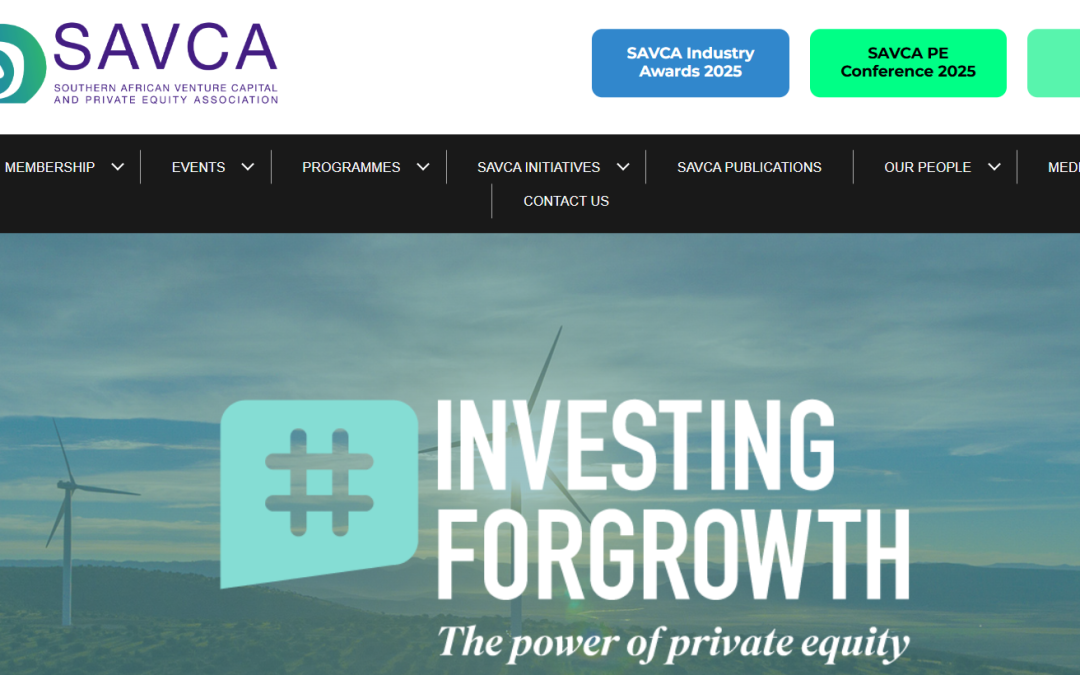In a tough funding climate, many South African entrepreneurs might be wondering what they can do to make their businesses more appealing to investors. With signs of recovery in the venture capital (VC) and private equity (PE) sectors, there is growing interest in scalable, well-governed SMEs that show potential for high growth. However, competition for funding remains fierce, and founders must be prepared to meet increasingly rigorous investor expectations.
To unpack how entrepreneurs can improve their investment readiness, the Southern African Venture Capital and Private Equity Association (SAVCA) spoke to three members across the PE, VC, and hybrid spectrum: Tomi Amosun, Managing Partner at Summit Africa (PE), Janice Johnston, CEO of Edge Growth Ventures (VC), and Jade Buckton, Senior Associate at 27four Investment Managers (VC). Their insights provide a clear and practical roadmap for founders seeking to secure growth funding in 2025 and beyond.
What are investors looking for?
While investor priorities vary slightly across funding types, the fundamentals remain consistent: strong leadership, sound governance, and scalable models. For PE investors, operational excellence and investor alignment are crucial. “To become investment-ready, SMEs should understand the ‘why‘ behind seeking a private capital partner and be clear on investor fit. Not all investors are the same,” says Amosun. He adds that founders need to understand the implications of different investment instruments, as these dictate everything from return expectations to strategic involvement.
Johnston highlights the importance of scalability in the VC space. “Focus on business models that can grow quickly with limited marginal cost. Tech, platforms, and subscription-based services are naturally scalable,” she says, noting that early traction and clear product-market fit are more compelling than ideas without validation.
From a hybrid perspective, Buckton underscores the need for transparency and team strength. “Investors want to see accurate financials and a capable, committed leadership team. “Ineffective management is a common cause for funding applications to be declined,” she says. This applies to both early-stage startups and more mature SMEs seeking growth capital.
The investment case also improves when businesses show alignment with macroeconomic trends. According to Buckton, sectors such as renewable energy, fintech, and digital infrastructure are particularly attractive to both PE and VC investors, given their scalability and developmental impact. Johnston agrees, adding: “Funds are increasingly looking for innovation that solves real problems, particularly in underserved markets.”
What sends investors running?
Several red flags can derail a promising funding opportunity. For VCs, it often comes down to governance and clarity. “If a startup is not able to clearly demonstrate revenue streams or credible projections, or if it lacks a well-defined exit strategy, that’s a major concern an investor will look out for,” Johnston explains.
From a PE lens, Amosun cautions against operational immaturity, “SMEs often focus heavily on revenue and sales but can forget about internal systems, compliance, and succession planning. That imbalance can be risky when scaling,” he says. He also notes that personal and business finances should be clearly separated to avoid reputational and legal issues.
Buckton points to financial resilience as a key consideration. “Operating with only a couple of months of cash reserves is a red flag. It shows vulnerability to shocks and limited financial resilience,” she says. Overreliance on short-term debt, loss of key customers, or management opacity can also trigger investor concerns. Investors are looking for businesses with the right balance of ambition and operational readiness.
Smart funding, not just any funding
Chasing high valuations without substance can backfire. Buckton shares cautionary tales of startups that collapsed under inflated expectations. “A reasonable valuation gives you room to stumble and recover. Founders who optimise for hype can often end up with cap tables that leave them with little ownership and few options, especially if they raised multiple convertible notes at increasing valuation caps. Think carefully about the compounded dilution upon conversion,” she says.
Amosun notes that transparency and alignment should trump short-term appeal. “Smart investors are not just backing businesses but the people running them. If your story and values don’t resonate with the investor’s mandate, the relationship won’t last,” he says.
What steps can SMEs take to improve investor appeal?
Investors are looking for businesses with traction, transparency, and clear growth plans. Johnston recommends demonstrating product-market fit through real metrics like customer retention, usage, and revenue growth. “Even small wins show you’re solving a real problem,” she says.
Amosun advises strengthening internal systems and governance. “Ensure accurate, timely reporting and focus on optimisation and compliance, not just sales,” he says. He also encourages founders to tell a compelling growth story that aligns with investor timeframes. “A five-to-seven-year plan showing how capital will unlock value is more powerful than abstract ambitions.”
From Buckton’s perspective, being investment-ready also includes knowing your funding options. “Understand the variety of investment tools out there, from equity to blended finance. Choose what fits your business stage and goals,” she says, adding that non-financial support like mentorship and access to networks can be just as critical in early growth stages.
Finally, building relationships matters. All three experts encourage founders to attend industry events, engage with incubators, and use platforms that connect SMEs with capital. According to Johnston, “Founders who make themselves visible and are open to constructive feedback often stand out. Coachability is a signal that you’re resilient and investable.”
A strategic partnership
Meeting a checklist won’t attract private capital. Showing that your business is resilient, scalable, and aligned with investor goals, will. Founders who combine vision with operational excellence will be best placed to access the funding they need to grow. While investor sentiment may fluctuate, the fundamentals of strong business building never go out of style. Focusing on financial discipline, governance, market validation, and relationship building, will help today’s entrepreneurs turn investor interest into long-term partnerships that fuel real, sustainable growth.


